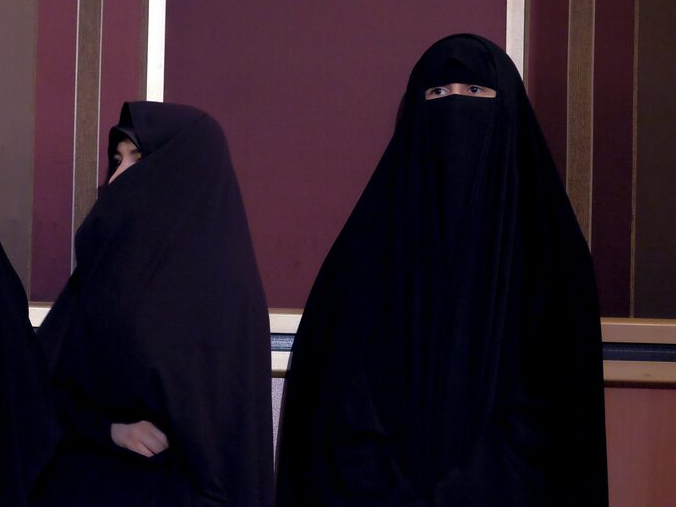As of today, the ban on women completely covering their faces with hijab, burqa or any other means in public places has come into force in Switzerland. According to the Reuters news agency, a fine of up to 1,000 Swiss francs, or approximately 96,000 rupees, will be imposed for violating this law.
In Switzerland’s 2021 referendum, 51.21% of citizens voted in favor of banning the burqa. After this, a law was passed regarding the banning of burqa, effective from today, i.e. January 1, 2025 (New Year).
Before Switzerland, laws on this subject were also adopted in Belgium, France, Denmark, Austria, the Netherlands and Bulgaria. After this law, women will no longer be able to cover their faces completely in public places such as public offices, public transport, restaurants, stores and other places.
There will be relaxation in places of worship and other religious places.
The law was passed in 2022
In 2022, the National Council, the lower house of the Swiss Parliament, passed a law banning the wearing of masks. During this period, 151 members voted for and 29 members voted against. After which, a law was adopted on this subject.
This proposal was put forward by the Swiss People’s Union (SVP), while the center and Green parties opposed it. Some say this law unfairly targets Muslim women. Those who support this law say it is a necessary step for cultural value and safety in public places.
Until 2021, only 30 women wore the niqab
According to a 2021 study by the University of Lucerne, almost no one wears a burqa in Switzerland. Here, only 30 women wear the niqab. In 2021, only about 5% of Switzerland’s 8.6 million inhabitants were Muslim, most of whom came from Turkey, Bosnia and Kosovo.
Earlier in 2009, the construction of minarets was only banned by referendum. This proposal was also put forward by the UDC party. In this proposal, it was said that these minarets were a sign of Islamization.
The burqa is common in South Asia and the niqab is common in Europe.
The burqa is a type of veil primarily worn by Muslim women in Afghanistan and South Asia. The burqa is a single piece of fabric that covers the entire body. In this case, there is usually only a thin mesh near the face, through which the woman can see outside.
While in Europe and the Gulf countries, the niqab is more popular than the burqa. The niqab is also a kind of veil, which usually only covers the lower half of the face and the area around the eyes remains open.
The scarf that covers the head, ears and neck is called Hijab, in which the face remains open. It is used in most Muslim countries.
————————————————– —
Switzerland ends India’s most favored nation status: Indian companies will have to pay 10% more taxes, measure taken after the Nestlé controversy
The Swiss government has withdrawn Most Favored Nation (MFN) status from India. After this decision by the Swiss government, Indian companies operating there will now have to pay 10% more taxes from January 1, 2025. Switzerland had granted MFN status to India under the Agreement to avoid double taxation (DTAA). here…

